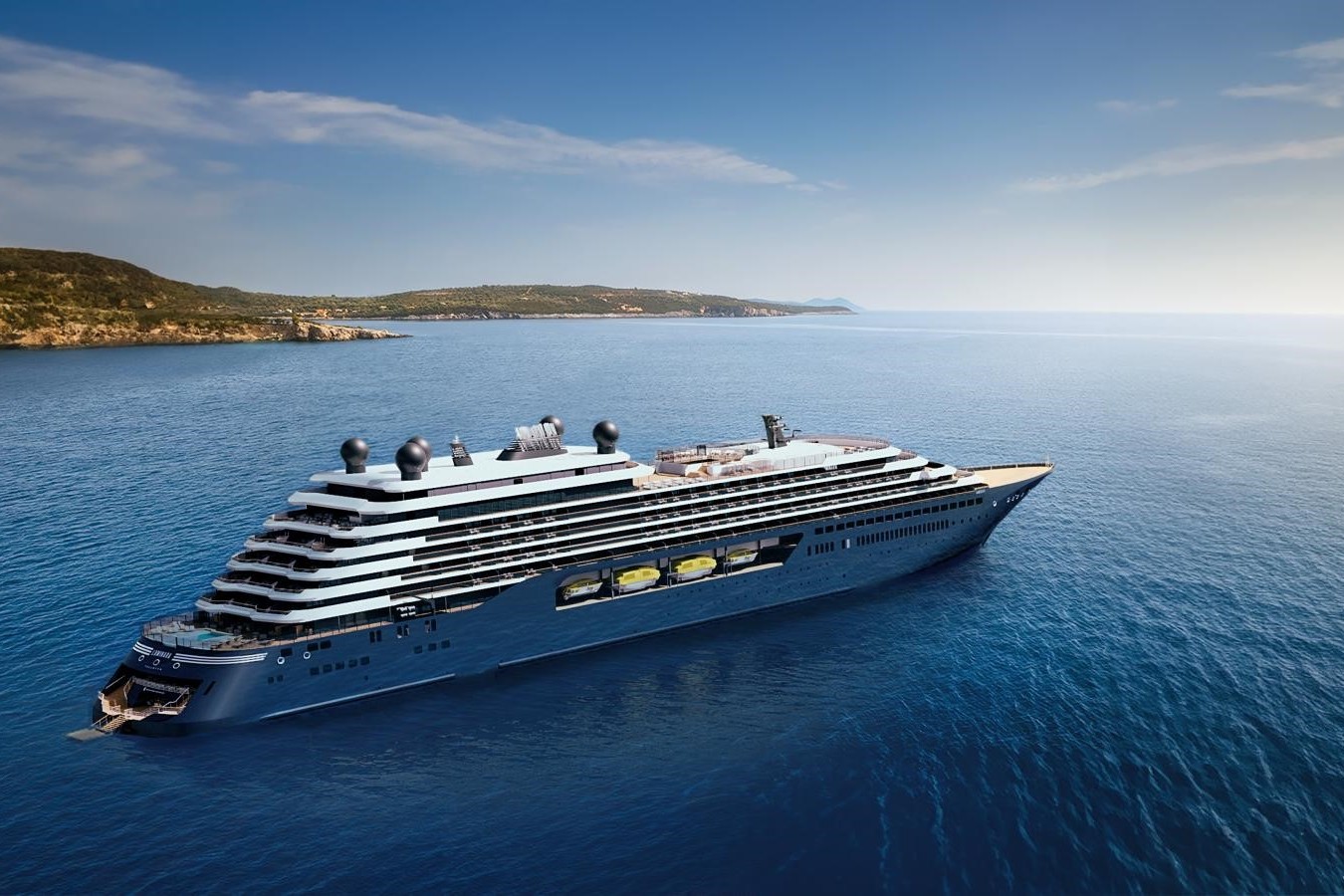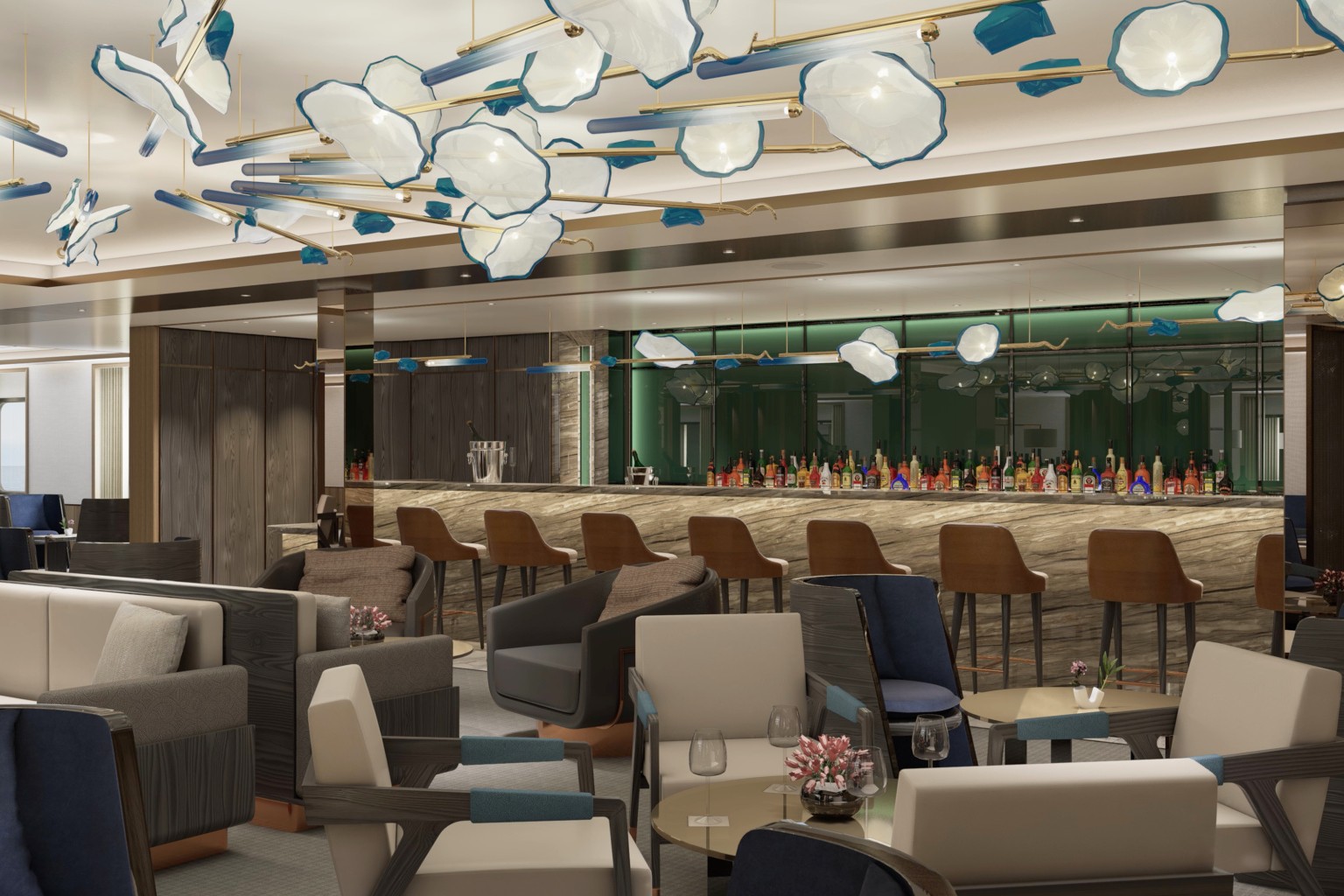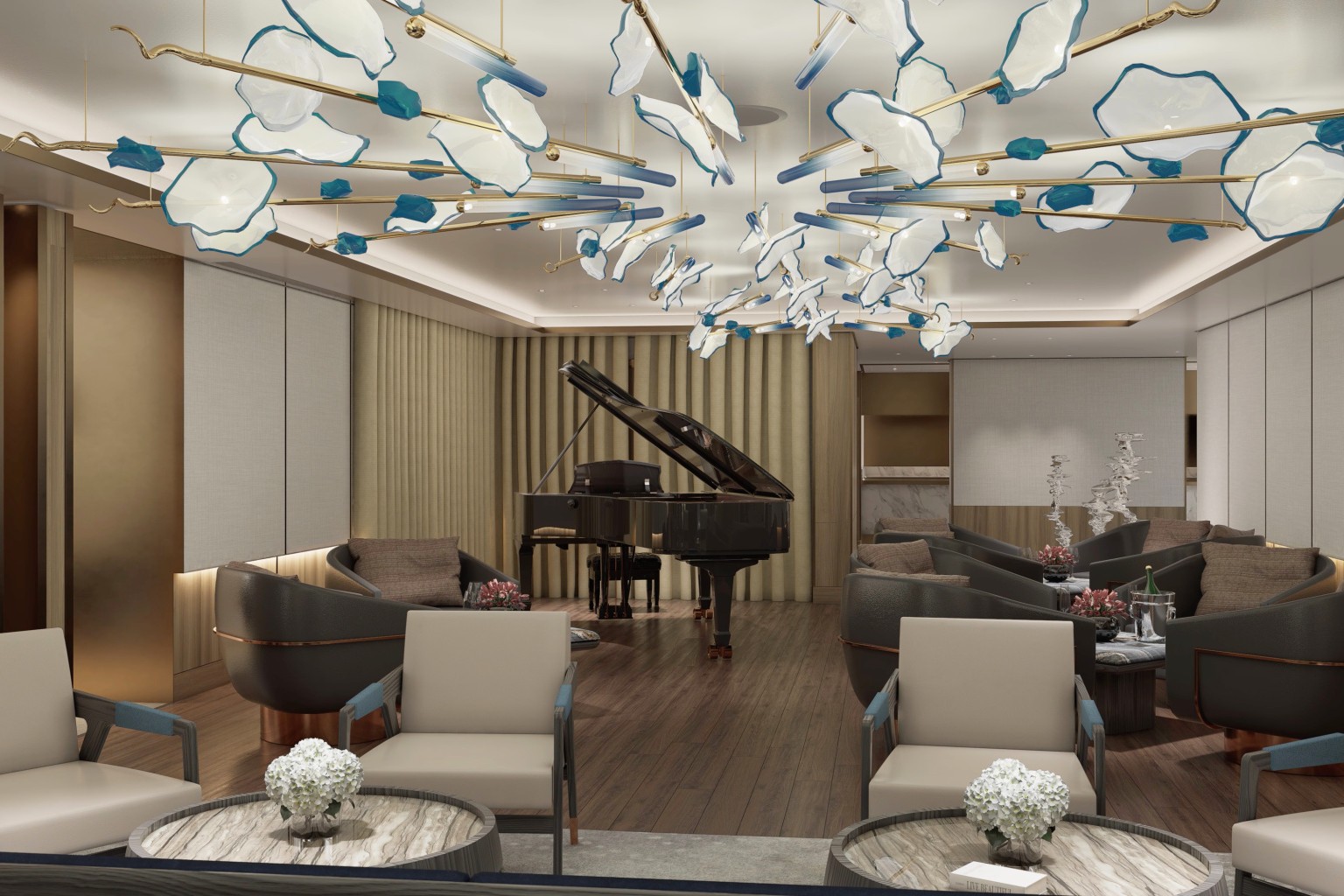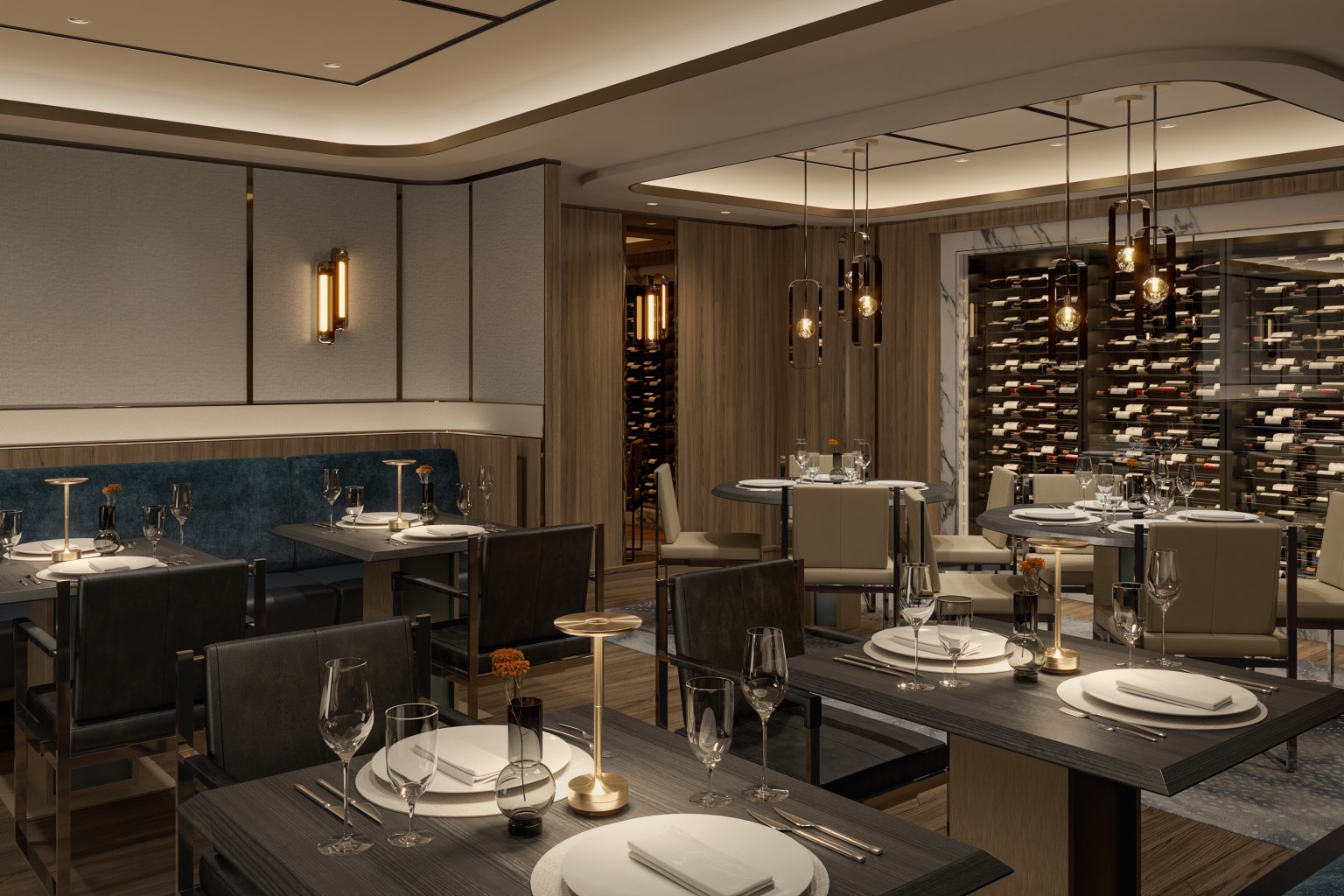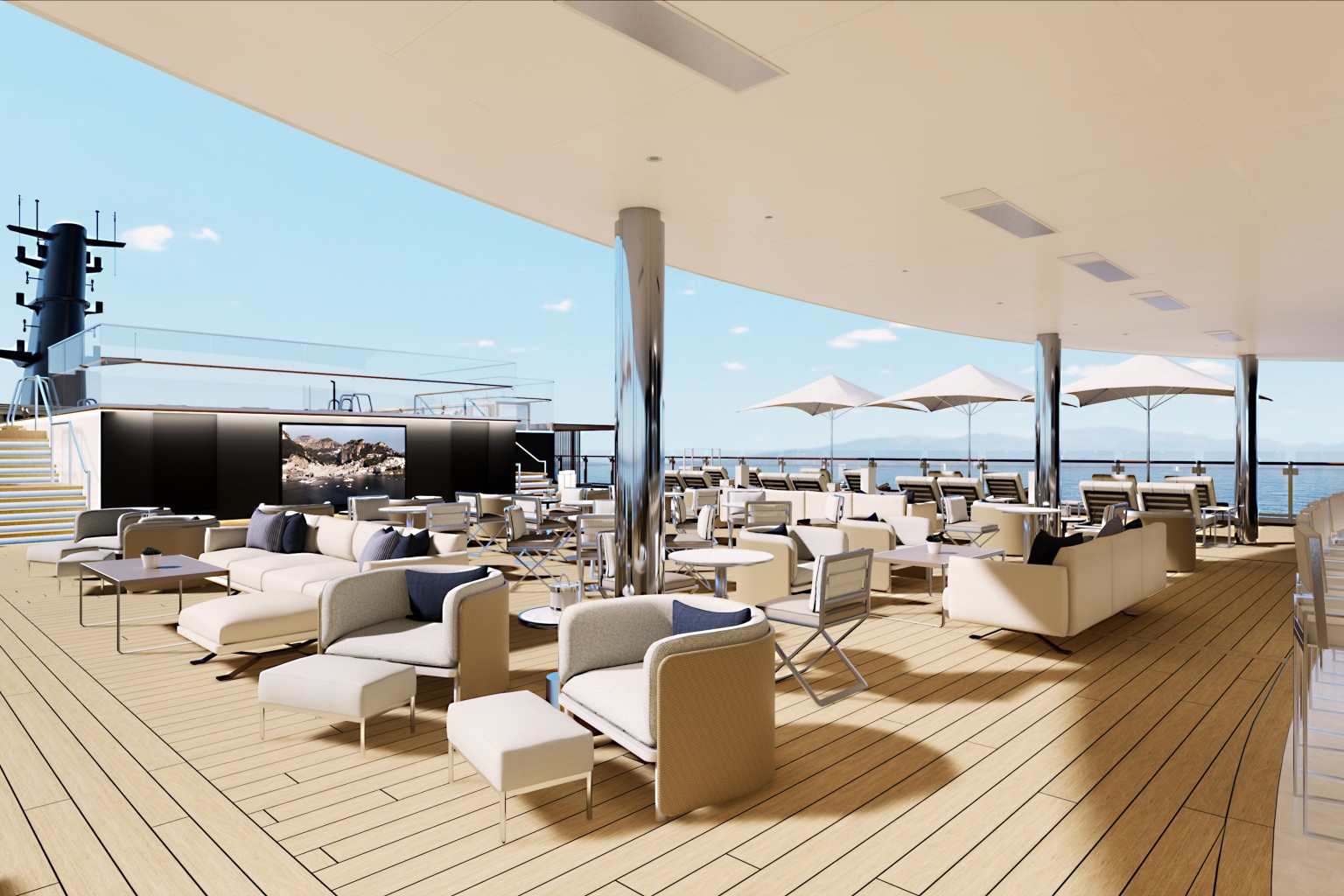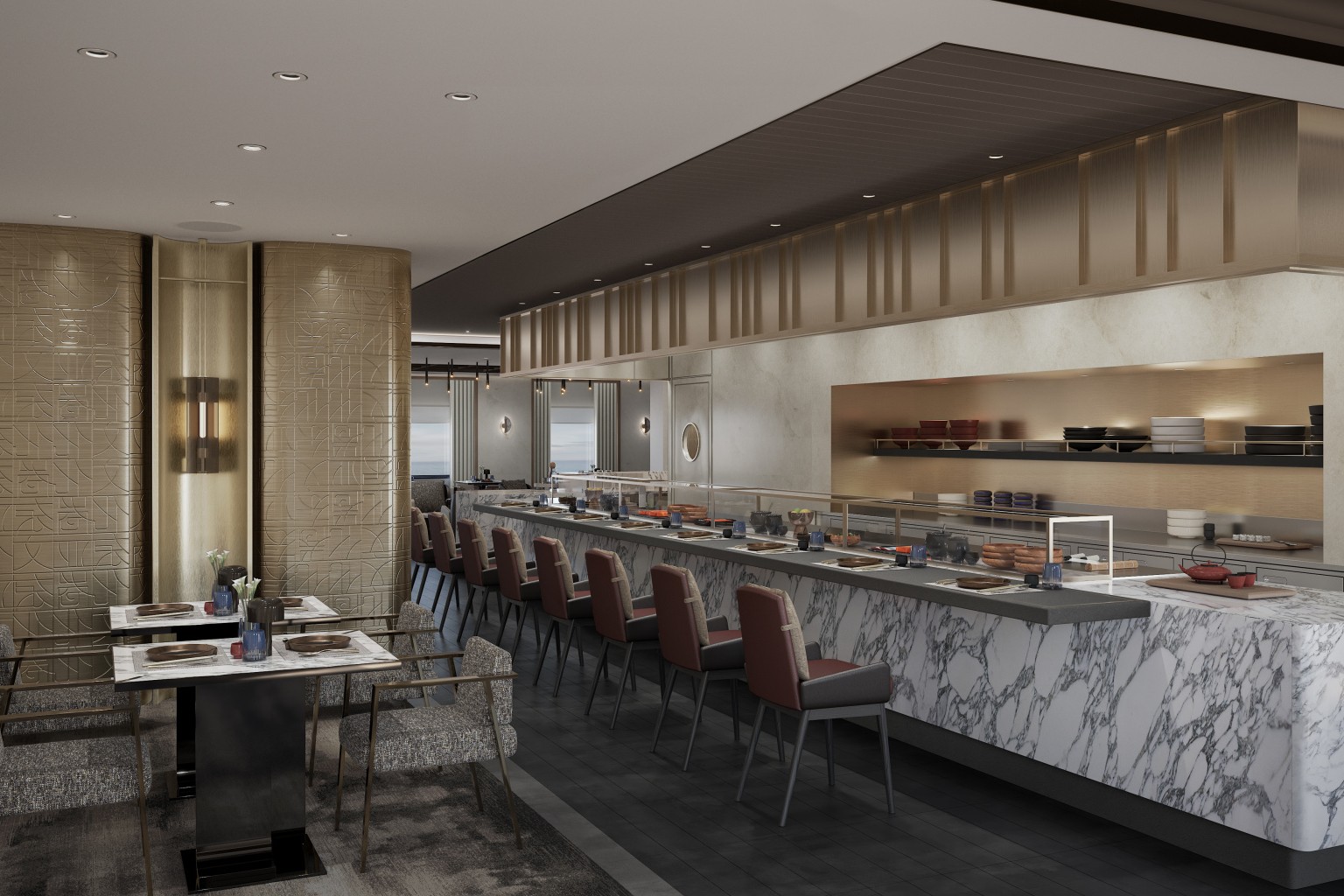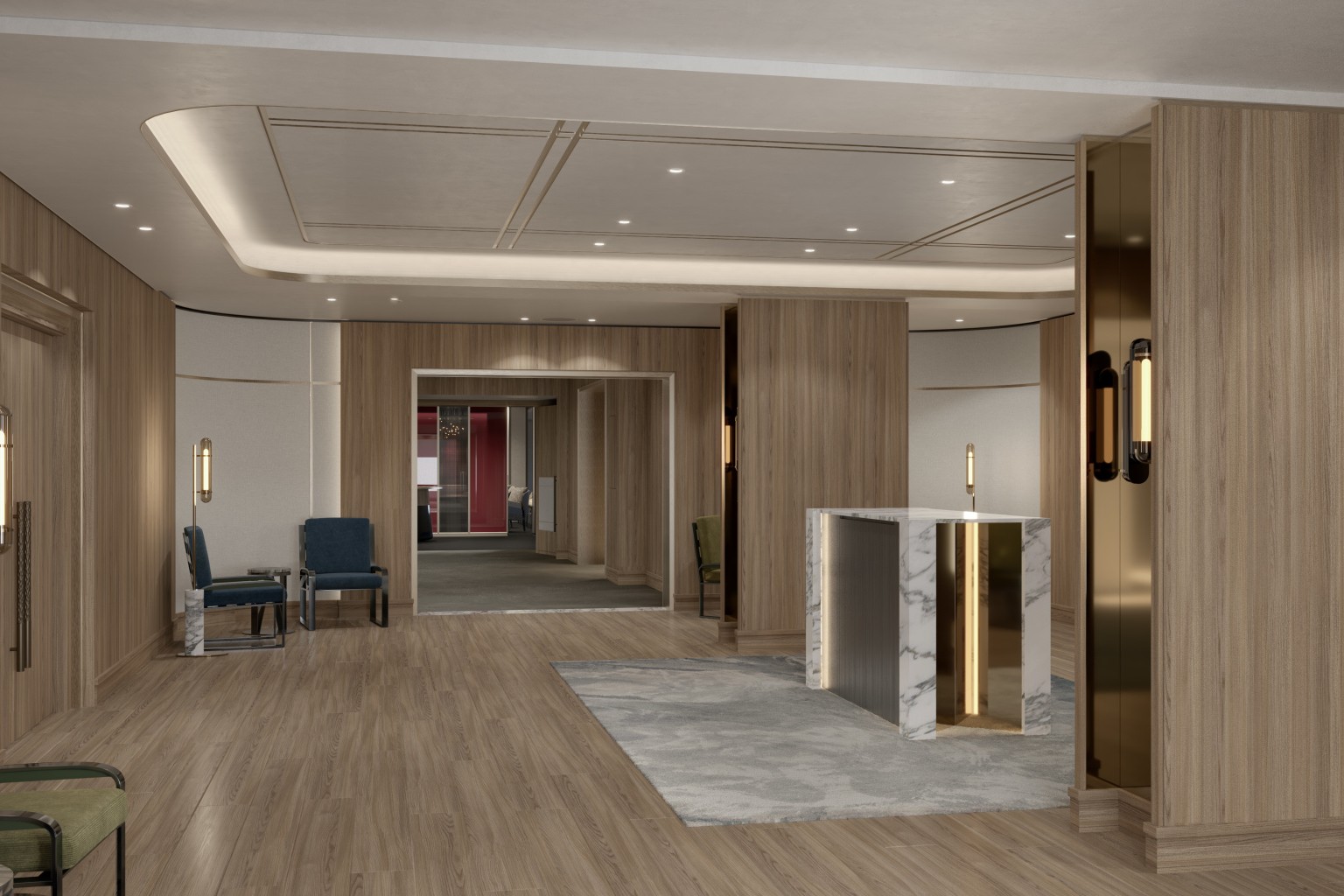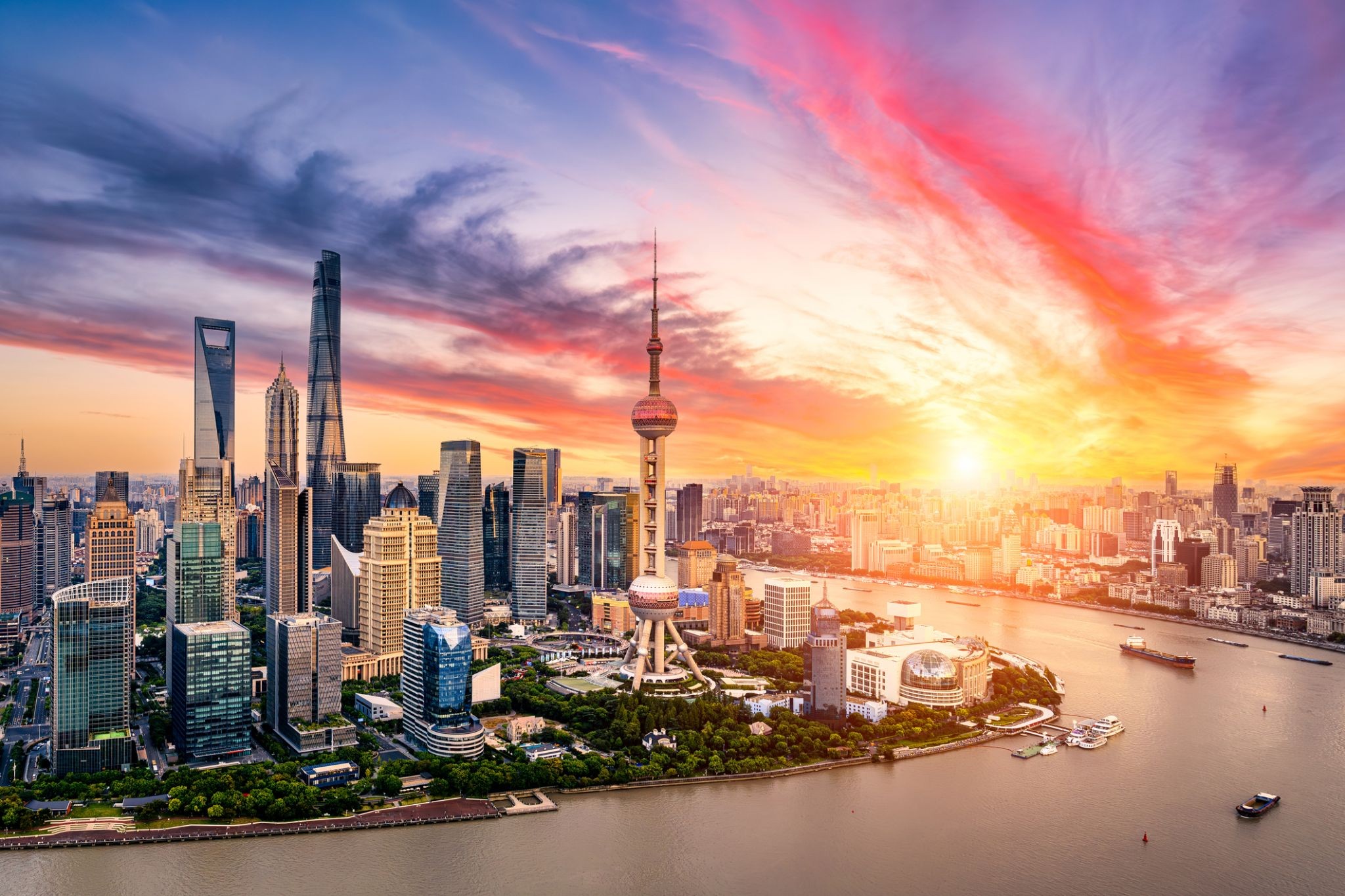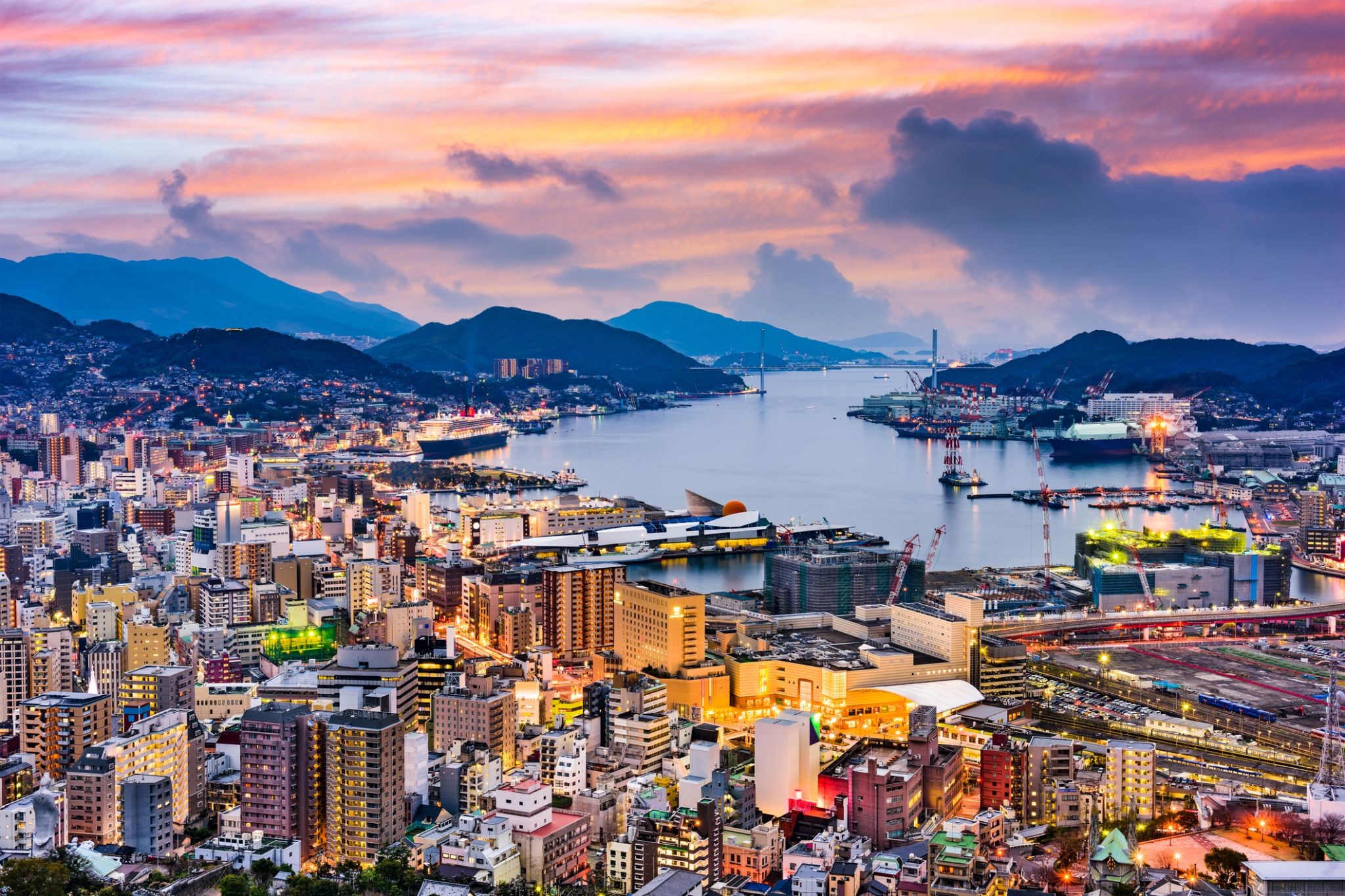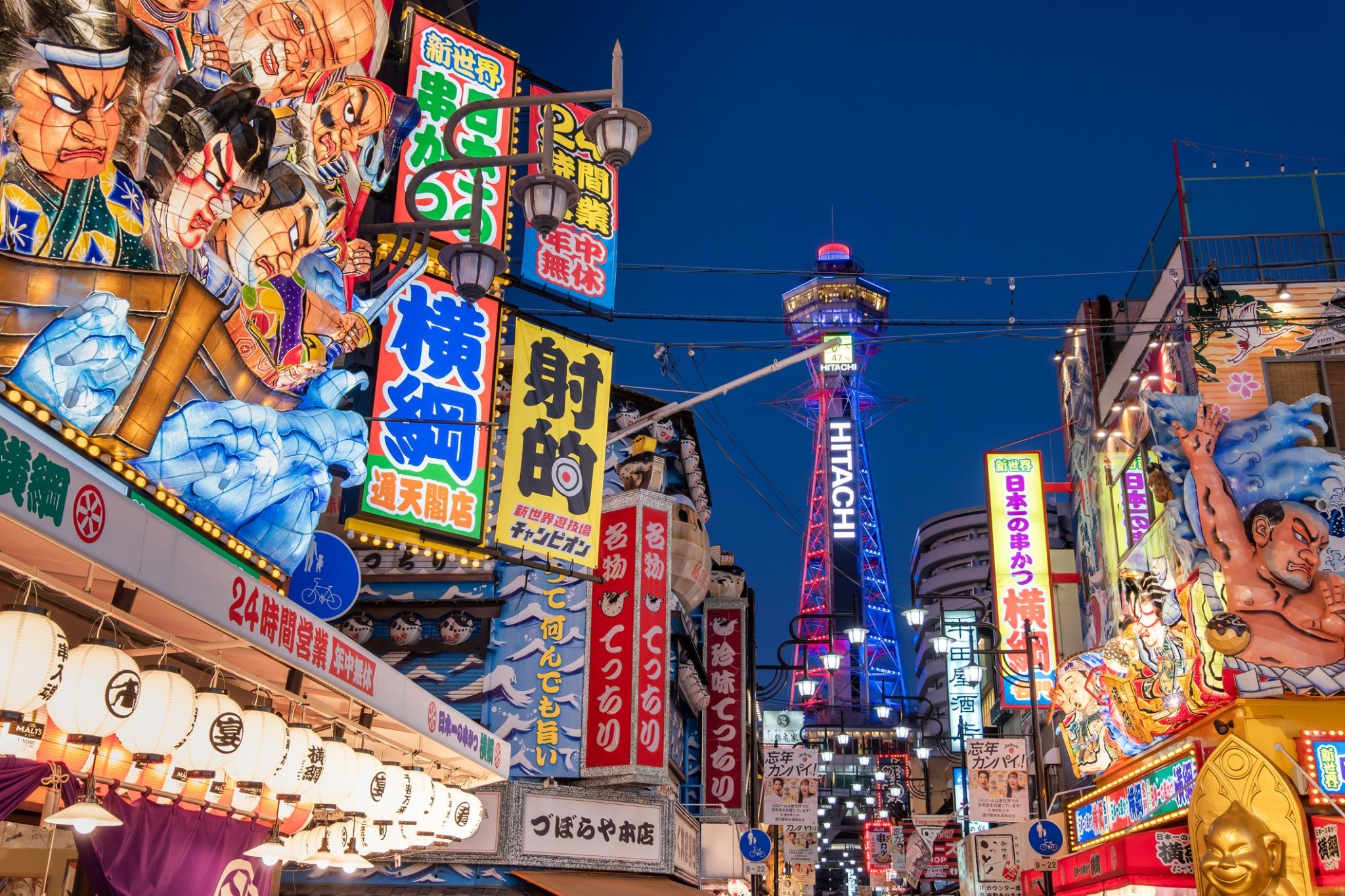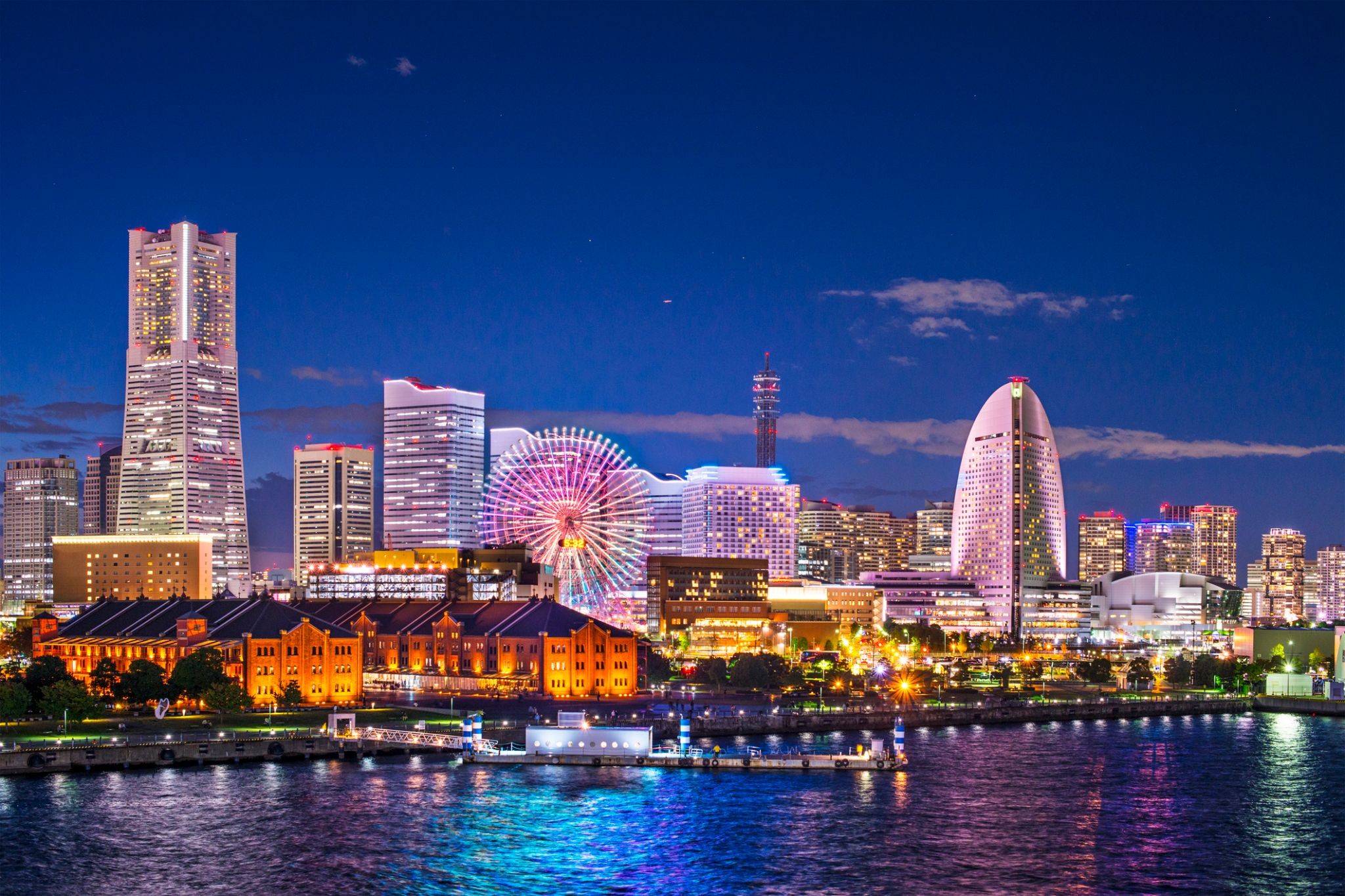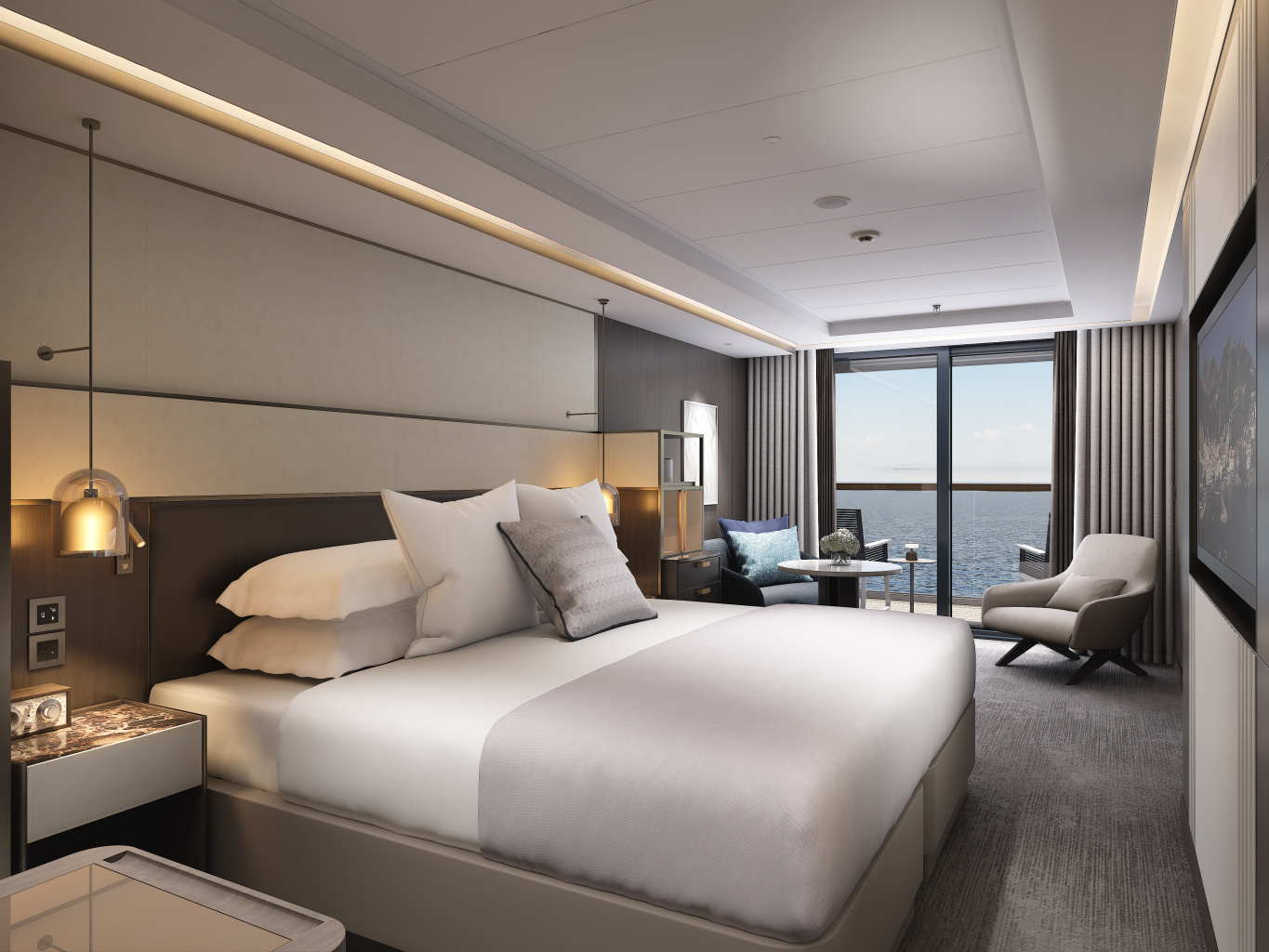
Cruise: 30,888,281
12 nights from HONG KONG
| Cruise Region : Asia, Africa |
| Company : The Ritz-Carlton Yacht Collection |
| Ship : LUMINARA |
| Journey Start : Sun 08 Mar 2026 |
| Journey End : Fri 20 Mar 2026 |
| Count Nights : 12 nights |
Schedule
| Day | Date | Port | Arrival | Departure |
|---|---|---|---|---|
| 1 | 8.03 Sun | Limbo / Cameroon | 17:00 | |
| 2 | 9.03 Mon | Day at sea / Sea | ||
| 3 | 10.03 Tue | Day at sea / Sea | ||
| 4 | 11.03 Wed | Shanghai / China | 16:00 | |
| 5 | 12.03 Thu | Shanghai / China | 21:00 | |
| 6 | 13.03 Fri | Day at sea / Sea | ||
| 7 | 14.03 Sat | Incheon / Korea | 07:00 | 21:00 |
| 8 | 15.03 Sun | Day at sea / Sea | ||
| 9 | 16.03 Mon | Nagasaki / Japan | 08:00 | 19:00 |
| 10 | 17.03 Tue | Day at sea / Sea | ||
| 11 | 18.03 Wed | Osaka / Japan | 07:00 | 23:59 |
| 12 | 19.03 Thu | Day at sea / Sea | ||
| 13 | 20.03 Fri | Yokohama (Tokyo) / Japan | 07:00 |
THE RITZ-CARLTON YACHT COLLECTION ALL-INCLUSIVE EXPERIENCE
Whether yachting through mesmerizing waters in a luxury Northern Europe and Baltic cruise, relaxing in the warm waters of the Caribbean through a luxury Caribbean cruise, or taking a crossing voyage, amenities should be your last worry while voyaging with The Ritz-Carlton Yacht Collection. All guests aboard our bespoke yacht collection can enjoy a variety of world-class features as part of their all-inclusive cruise fare, regardless of suite type or voyage duration.
YOUR ALL-INCLUSIVE FARE INCLUDES:
• Oceanview accommodations, each with private terrace overlooking the ocean
• Onboard gratuities
• Multiple dining venues
• 24-hour in-suite dining
• Beverages in-suite and throughout the yacht
• Onboard entertainment and enrichment
• Premium Wi-Fi, supporting browsing, social media, streaming services, video calls and VPN services.
• Marina-style platform with access to non-motorized watersports while at anchor
CRUISE CANCELLATIONS:
Cruise cancellation requests received within 150 days of the Sailing Date will be subject to the following cancellation fees:
150 to 121 days prior to Sailing Date a cancellation fee equal to 25% of the Cruise Fare
120 to 91 days prior to Sailing Date a cancellation fee equal to 50% of the Cruise Fare
90 to 61 days prior to Sailing Date a cancellation fee equal to 75% of the Cruise Fare
60 or less prior to Sailing Date a cancellation fee equal to 100% of the Cruise Fare
-
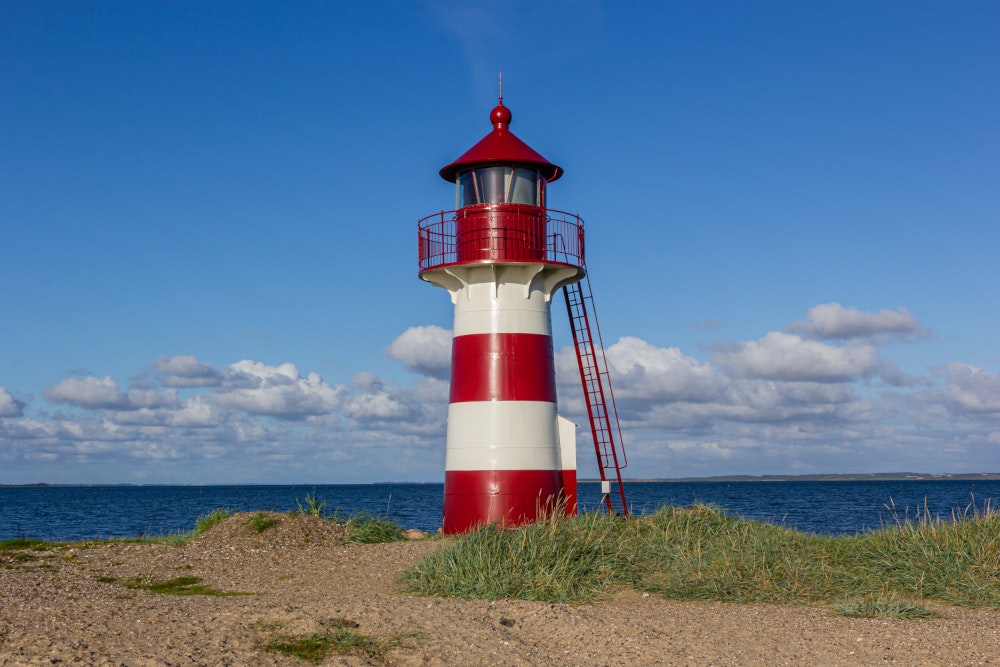 Day 1: 17:00
Day 1: 17:00Limbo / Cameroon
-
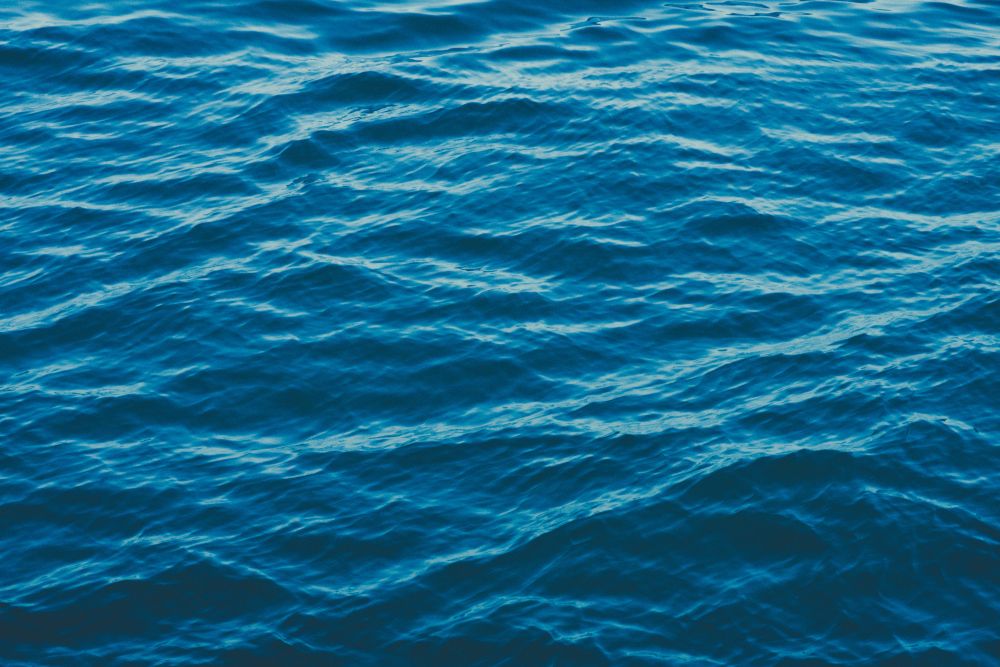 Day 2:
Day 2:Day at sea / Sea
-
 Day 3:
Day 3:Day at sea / Sea
-
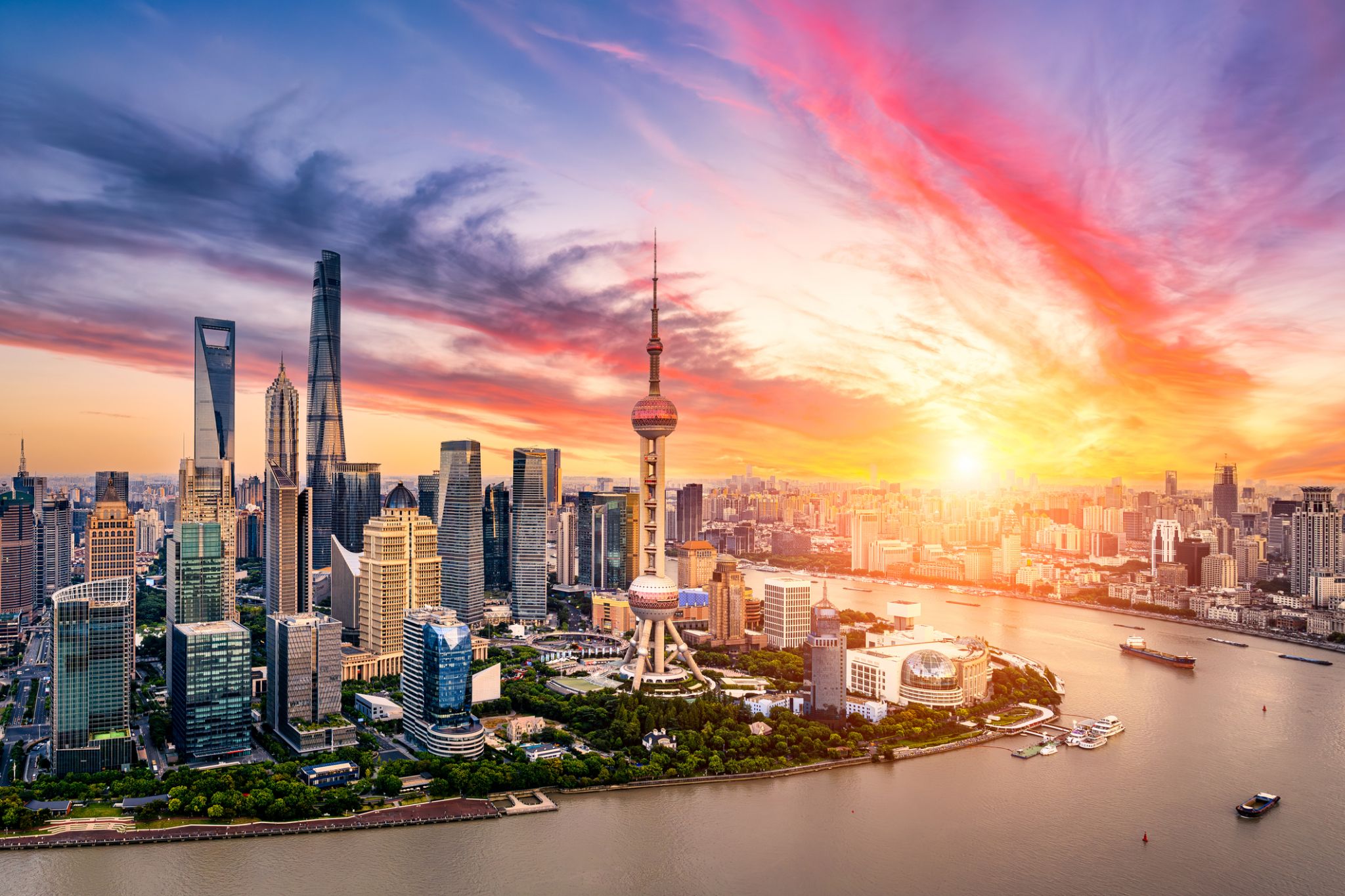 Day 4: 16:00-00:00
Day 4: 16:00-00:00Shanghai / China
Shanghai is one of the four municipalities under the direct administration of the central government of the Republic of China, the largest city in China by population, and the second most populous city proper in the world, with a population of 24.18 million as of 2017. It is a global financial centre and transport hub, with the world's busiest container port. Located in the Yangtze River Delta, it sits on the south edge of the estuary of the Yangtze in the middle portion of the East Chinacoast. The municipality borders the provinces of Jiangsu and Zhejiang to the north, south and west, and is bounded to the east by the East China Sea.
As a major administrative, shipping and trading city, Shanghai grew in importance in the 19th century due to trade and recognition of its favourable port location and economic potential. The city was one of five treaty ports forced open to foreign trade following the British victory over China in the First Opium War. The subsequent 1842 Treaty of Nankingand 1844 Treaty of Whampoa allowed the establishment of the Shanghai International Settlement and the French Concession. The city then flourished as a centre of commerce between China and other parts of the world (predominantly the Occident), and became the primary financial hub of the Asia-Pacific region in the 1930s. However, with the Communist Party takeover of the mainland in 1949, trade was limited to other socialist countries, and the city's global influence declined. In the 1990s, the economic reforms introduced by Deng Xiaoping resulted in an intense re-development of the city, aiding the return of finance and foreign investment to the city. It has since re-emerged as a hub for international trade and finance; it is the home of the Shanghai Stock Exchange, one of the world's largest by market capitalization.
Shanghai has been described as the "showpiece" of the booming economy of mainland China; renowned for its Lujiazui skyline, and museums and historic buildings, such as those along The Bund, as well as the City God Templeand the Yu Garden.
-
 Day 5: 00:00-21:00
Day 5: 00:00-21:00Shanghai / China
Shanghai is one of the four municipalities under the direct administration of the central government of the Republic of China, the largest city in China by population, and the second most populous city proper in the world, with a population of 24.18 million as of 2017. It is a global financial centre and transport hub, with the world's busiest container port. Located in the Yangtze River Delta, it sits on the south edge of the estuary of the Yangtze in the middle portion of the East Chinacoast. The municipality borders the provinces of Jiangsu and Zhejiang to the north, south and west, and is bounded to the east by the East China Sea.
As a major administrative, shipping and trading city, Shanghai grew in importance in the 19th century due to trade and recognition of its favourable port location and economic potential. The city was one of five treaty ports forced open to foreign trade following the British victory over China in the First Opium War. The subsequent 1842 Treaty of Nankingand 1844 Treaty of Whampoa allowed the establishment of the Shanghai International Settlement and the French Concession. The city then flourished as a centre of commerce between China and other parts of the world (predominantly the Occident), and became the primary financial hub of the Asia-Pacific region in the 1930s. However, with the Communist Party takeover of the mainland in 1949, trade was limited to other socialist countries, and the city's global influence declined. In the 1990s, the economic reforms introduced by Deng Xiaoping resulted in an intense re-development of the city, aiding the return of finance and foreign investment to the city. It has since re-emerged as a hub for international trade and finance; it is the home of the Shanghai Stock Exchange, one of the world's largest by market capitalization.
Shanghai has been described as the "showpiece" of the booming economy of mainland China; renowned for its Lujiazui skyline, and museums and historic buildings, such as those along The Bund, as well as the City God Templeand the Yu Garden.
-
 Day 6:
Day 6:Day at sea / Sea
-
 Day 7: 07:00-21:00
Day 7: 07:00-21:00Incheon / Korea
Incheon is a port city located on the west coast of South Korea, just 40 kilometers from Seoul. A key transportation hub, Incheon is renowned for its international airport, one of the largest in Asia and an important gateway for travelers heading to South Korea. The city is also known for its picturesque promenades, beautiful beaches, and islands, perfect for leisurely strolls. One of the most popular tourist spots is the Incheon waterfront promenade, with its unique bridge offering breathtaking views of the bay and nearby islands.
In addition, Incheon has a rich cultural history, especially in the Munsoo Island area, where visitors can explore ancient temples and traditional Korean villages. The city gained fame in 1950 due to the Incheon Landing, a pivotal battle of the Korean War. For lovers of modern culture, Incheon hosts exhibitions and festivals, while local restaurants serve the best of Korean cuisine, particularly seafood, which is especially popular due to the city's coastal location.
-
 Day 8:
Day 8:Day at sea / Sea
-
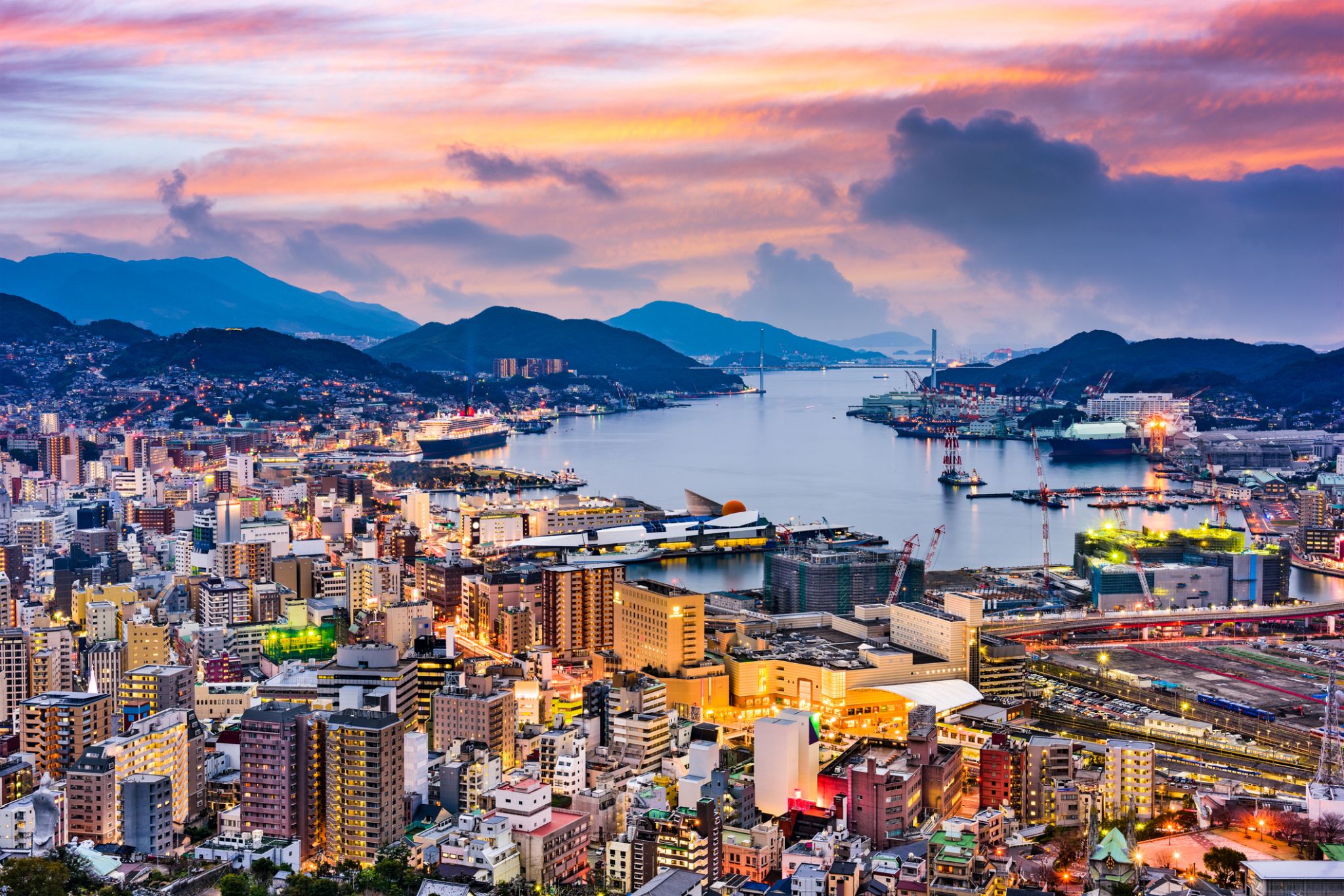 Day 9: 08:00-19:00
Day 9: 08:00-19:00Nagasaki / Japan
Nagasaki is the capital and the largest city of Nagasaki Prefecture on the island of Kyushu in Japan. The city's name means "long cape" in Japanese. Nagasaki became a centre of colonial Portuguese and Dutch influence in the 16th through 19th centuries, and the Hidden Christian Sites in the Nagasaki Region have been recognized and included in the UNESCO World Heritage List. Part of Nagasaki was home to a major Imperial Japanese Navy base during the First Sino-Japanese War and Russo-Japanese War.
During World War II, the American atomic bombings of Hiroshima and Nagasaki made Nagasaki the second and, to date, last city in the world to experience a nuclear attack (at 11:02 a.m., August 9, 1945 'Japan Standard Time (UTC+9)').
As of 1 March 2017, the city has an estimated population of 425,723 and a population density of 1,000 people per km2. The total area is 406.35 km2 (156.89 sq mi).
-
 Day 10:
Day 10:Day at sea / Sea
-
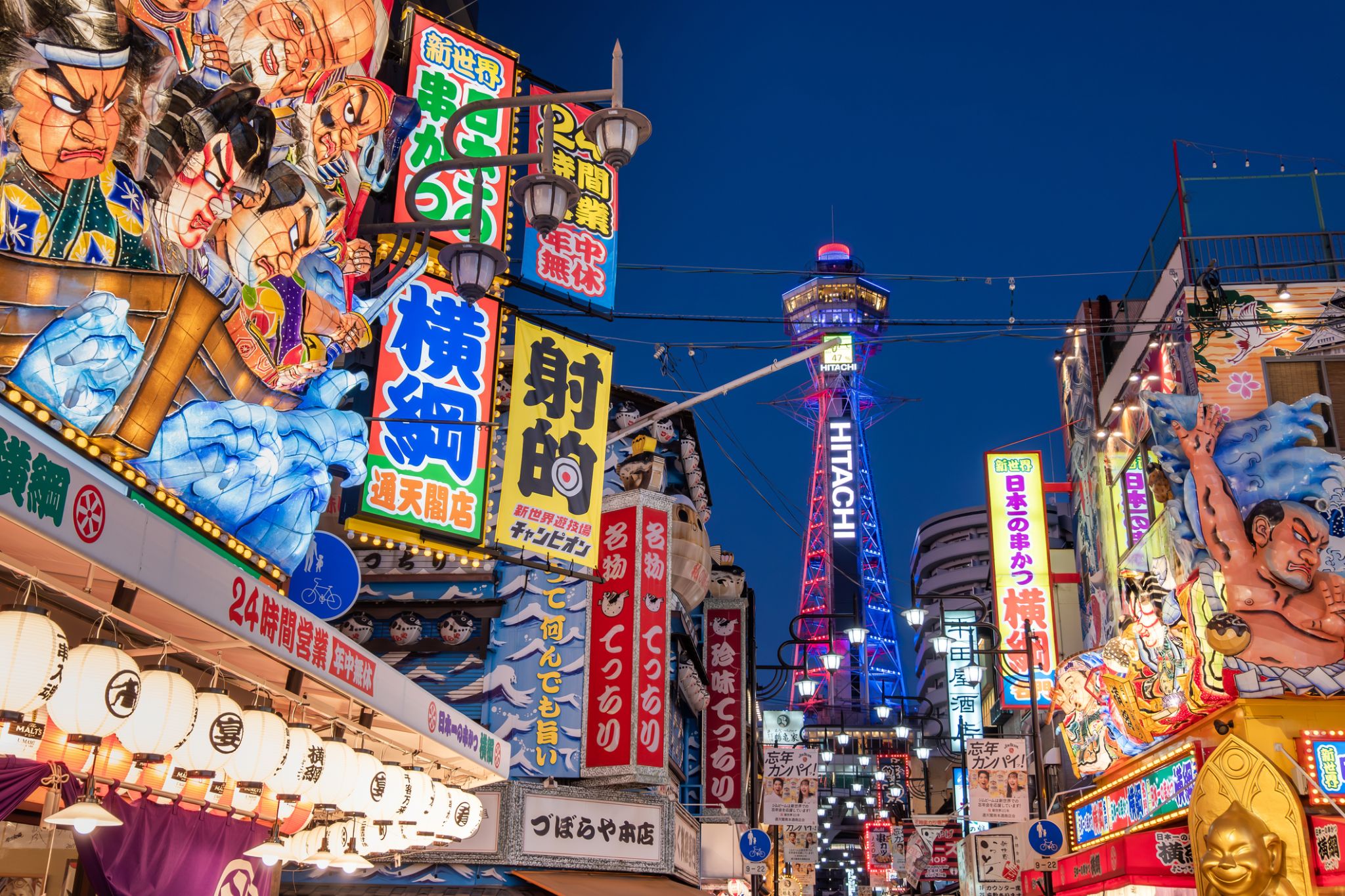 Day 11: 07:00-23:59
Day 11: 07:00-23:59Osaka / Japan
Osaka is a designated city in the Kansai regionof Japan. It is the capital city of Osaka Prefecture and the largest component of the Keihanshin Metropolitan Area, the second largest metropolitan area in Japan and among the largest in the world with over 19 million inhabitants. Osaka will host Expo 2025. The current mayor of Osaka is Hirohumi Yoshimura.
-
 Day 12:
Day 12:Day at sea / Sea
-
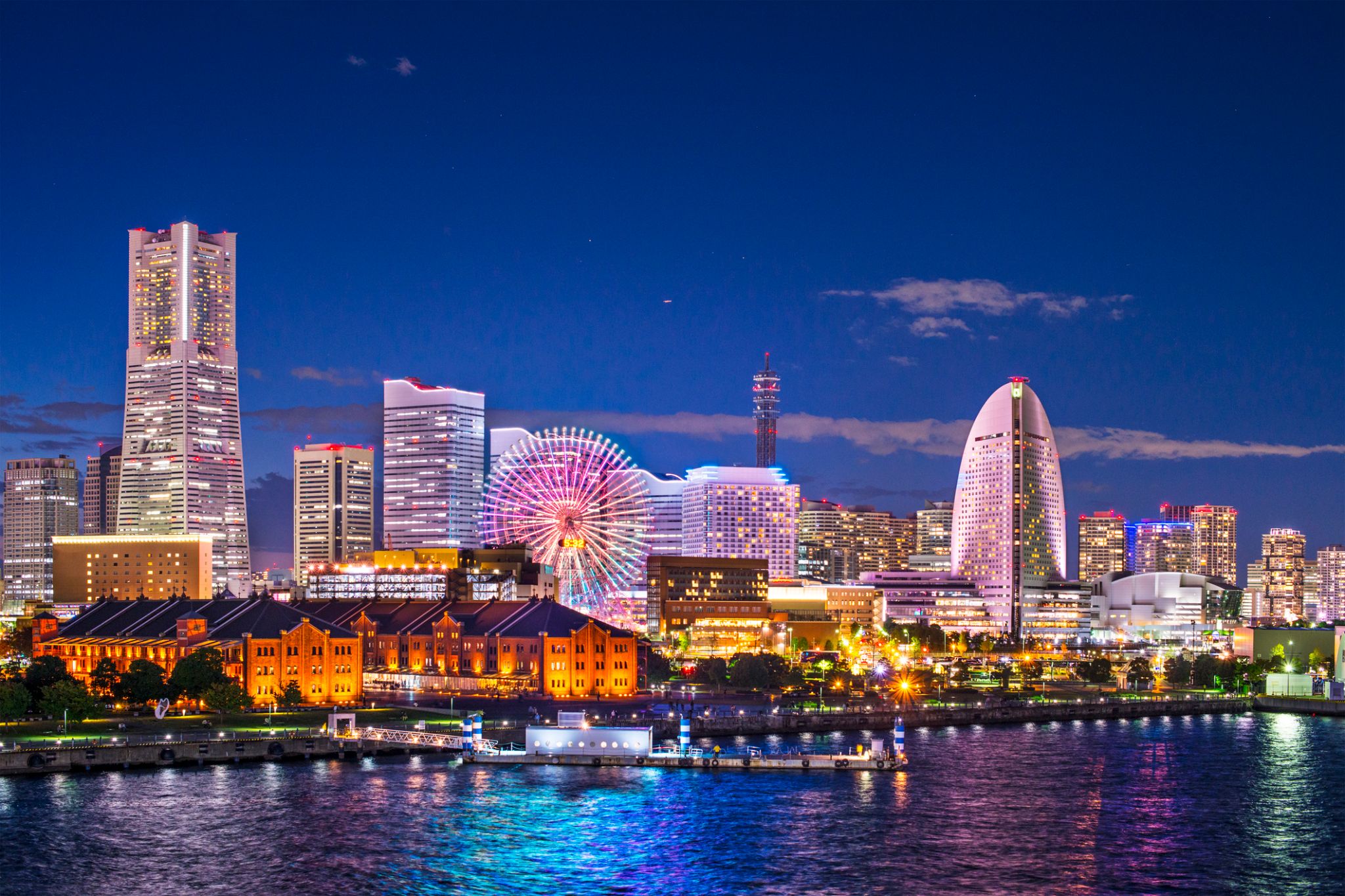 Day 13: 07:00
Day 13: 07:00Yokohama (Tokyo) / Japan
Tokyo, officially Tokyo Metropolis, one of the 47 prefectures of Japan, has served as the Japanese capital since 1869. As of 2014, the Greater Tokyo Arearanked as the most populous metropolitan area in the world. The urban area houses the seat of the Emperor of Japan, of the Japanese government and of the National Diet. Tokyo forms part of the Kantō region on the southeastern side of Japan's main island, Honshu, and includes the Izu Islands and Ogasawara Islands. Tokyo was formerly named Edo when Shōgun Tokugawa Ieyasu made the city his headquarters in 1603. It became the capital after Emperor Meiji moved his seat to the city from Kyoto in 1868; at that time Edo was renamed Tokyo. Tokyo Metropolis formed in 1943 from the merger of the former Tokyo Prefecture and the city of Tokyo. Tokyo is often referred to as a city but is officially known and governed as a "metropolitan prefecture", which differs from and combines elements of a city and a prefecture, a characteristic unique to Tokyo.
The 23 Special Wards of Tokyo were formerly Tokyo City. On July 1, 1943, it merged with Tokyo Prefecture and became Tokyo Metropolis with an additional 26 municipalities in the western part of the prefecture, and the Izu islandsand Ogasawara islands south of Tokyo. The population of the special wards is over 9 million people, with the total population of Tokyo Metropolis exceeding 13.8 million. The prefecture is part of the world's most populous metropolitan area called the Greater Tokyo Area with over 38 million people and the world's largest urban agglomeration economy. As of 2011, Tokyo hosted 51 of the Fortune Global 500 companies, the highest number of any city in the world at that time. Tokyo ranked third (twice) in the International Financial Centres Development Index. The city is home to various television networks such as Fuji TV, Tokyo MX, TV Tokyo, TV Asahi, Nippon Television, NHK and the Tokyo Broadcasting System.
